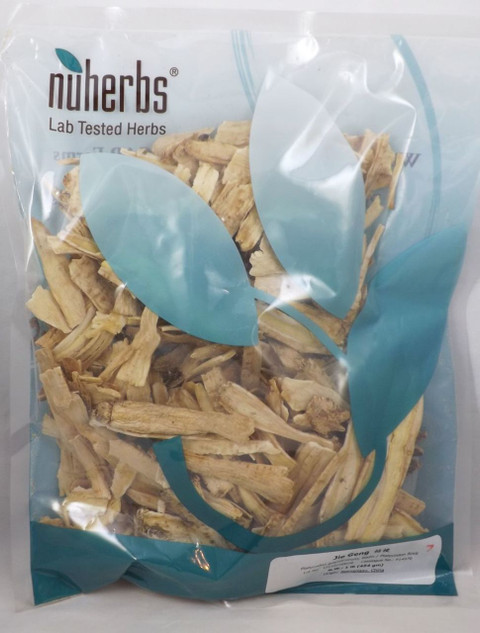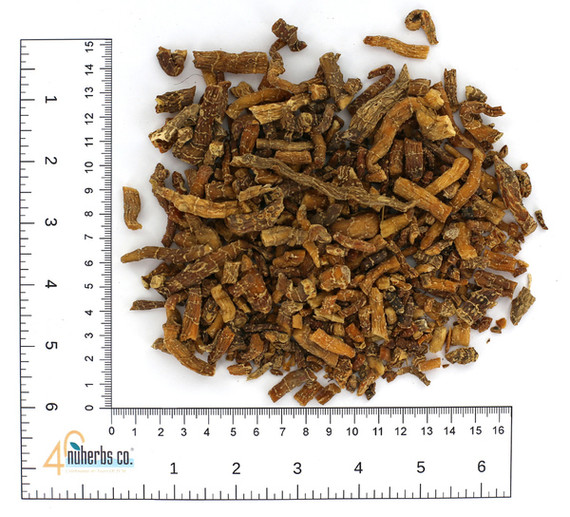Jing Jie (Schizonepeta tenuifolia): Traditional Chinese Herb for Wind-Cold, Skin Health & Detox Support
Jing Jie (Schizonepeta tenuifolia) is a warming Chinese herb used to release the exterior, ease wind-cold symptoms, stop itching, and support skin detox. Learn its benefits, uses in tea, tincture, and decoction, and how it fits into TCM formulas for colds, allergies, and rashes.

| Aspect | Details |
|---|---|
| Health Benefits | - Temporary Alleviates symptoms of allergies and colds - Reduces fever and helps with respiratory issues - Assists in relieving skin irritations and rashes - Promotes digestion and regulates Qi flow |
| PubMed Research Support | - Wang, Y., et al. "The Effects of Schizonepeta on Allergic Responses." PubMed. - Zhang, L., et al. "Antiviral Properties of Jing Jie Extract." PubMed Central. - Li, H., et al. "Evaluating the Anti-inflammatory Effects of Jing Jie." PubMed. |
| How to Use | - Tincture: Take drops mixed with water for targeted health benefits. - Decoction: Boil dried Jing Jie to prepare a concentrated herbal tea. - Powdered Form: Mix with food or beverages for daily use. |
| Chinese Theory | - In Traditional Chinese Medicine (TCM), Jing Jie is known as a 'wind-dispersing' herb. - It is believed to dispel external pathogens, clear heat, and restore balance to the body, particularly useful in treating excess Yang conditions. |
| Why It Works | - Contains active compounds such as flavonoids and essential oils that exhibit anti-allergic, anti-inflammatory, and antiviral properties. - These compounds help modulate immune responses and promote overall health. |
| FAQ | - Q: Is Jing Jie safe for everyone? A: Generally considered safe, but consult a healthcare professional if pregnant or nursing. - Q: How often can I take it? A: Dosage varies; follow the product instructions or consult a practitioner. |
Common Name: Schizonpeta
Botanical Name: Schizonepeta tenuifolia
Channels/Meridians: Lung, Liver
Pin Yin Name: Jing Jie, Jing Jie Tan, Jia Su
Other Ingredients: None, nothing has been added to this product.
Package Size: One Pound (1 lb.)
Form: Cut, Lab Tested
Dosage: Follow doctors instructions on how to use this herb.
Origin: China
Brand: Nuherbs Lab Tested
Cautions: Do not use if nursing or pregnant.
Additional Information About Jing Jie
- Immune system support
- Support for healthy inflammation response
Product Properties: acrid, slightly warm, fragrant
How to Use Shizonepeta (Jing Jie)
One of the most common ways people use shizonepeta is as a poultice or topically on the skin. There are no known reports of allergic reactions to the herb. In traditional Chinese medicine, the charred form of the herb is often used.
Check out our How to Use Bulk Herbs page to see how to use herbs correctly. Our web page is constantly expanding, as of today we have articles on:
- How to make salves, poultice, tinctures, teas, capsules, gargles, and foot bathes
- How to make a citrus facial splash
- Cayenne pepper: Caterpillar and aphid spray ( Natural insect repellent )
- Citrus potpourri basket
Nuherbs
Each batch of herbs is dual-lab tested by in-house lab and independent third party lab. In-house lab is equipped with instruments such as a high performance liquid chromatograph, moisture determination meter, Fourier transform infrared spectrometer, atomic absorption spectrophotometer, gas chromatograph, etc.
In addition, the following additional tests are performed:
- Microbacteria
- Pesticides - over 200 pesticides tested for (Uab 2000 screen).
- Heavy Metals - Lead, Mercury and Arsenic
Packaging and Storage
Processing and storage standards make the difference in preserving the quality of our herbs. Our herbs have a shelf life of 24-36 months. Our natural herbs retain their freshness and quality without added preservatives. Special measures are taken to store the herbal materials to maintain their optimum required conditions for humidity, temperature and protection from light.
About Traditional Chinese Herbs
Traditional Chinese herbs encompasses the use of different parts of plants, such as the leaves, roots, stems, flowers, and seeds. These plant parts are often used as a tea, decoctions, extracts, made into capsules or even a footbath. These bulk herbs should be regarded as an added feature to modern western healthcare, and not as a replacement. Chinese traditional herbs (sometimes used as teas) emphasize harmony and balance. We encourage you to educate yourself on herbs and supplements by researching reputable sites and books. Have an open discussion with your physician on what will be most beneficial for your health issues. Discuss the possible interactions of herbs and pharmaceuticals with your pharmacist or physician.
Herbal Information for Jing Jie in Lab Tested Cut Form
References:
https://tcmwiki.com/wiki/jing-jie



















